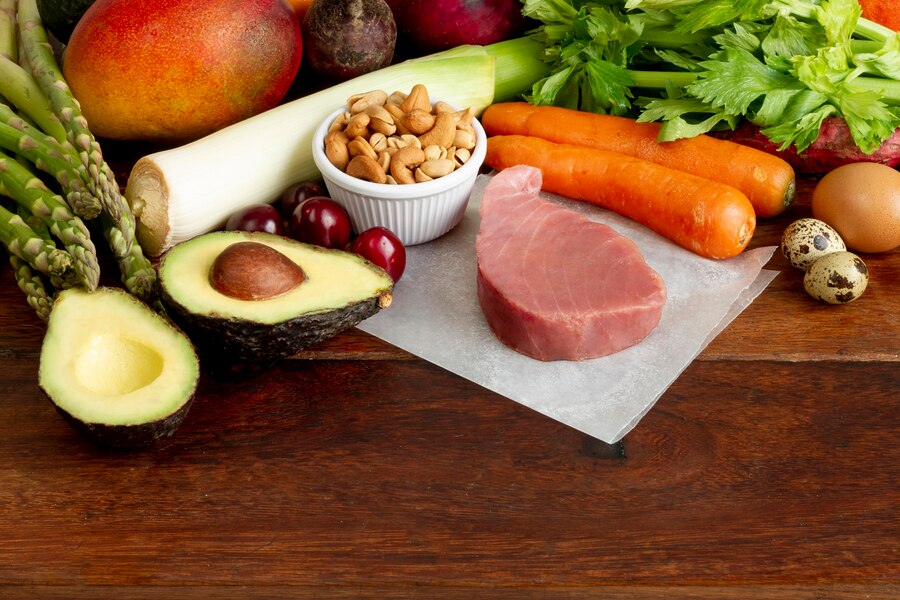
When it comes to building muscle and achieving your fitness goals, your diet plays a crucial role. Incorporating high-protein foods into your meals not only helps repair and build muscle tissue but also fuels your body for optimal performance. This comprehensive guide explores the best high-protein foods for muscle gain, their benefits, and how to include them in your diet. We’ll also provide a comparison table, answer frequently asked questions, and conclude with actionable tips for success.
Why Protein Matters for Muscle Gain
Protein is the building block of muscles. It provides the essential amino acids needed for muscle repair and growth. Without adequate protein intake, your muscles won’t recover effectively after intense workouts, and your gains will be limited. Research from Harvard Health shows that active individuals require 1.2-2.0 grams of protein per kilogram of body weight daily. This range ensures that the body has enough amino acids to repair muscle fibers and promote hypertrophy.
Top High-Protein Foods for Muscle Gain
1. Eggs
Eggs are a powerhouse of high-quality protein, rich in essential amino acids, vitamins, and minerals. A single large egg provides about 6 grams of protein. The combination of protein and healthy fats makes eggs a versatile food for breakfast, post-workout meals, or snacks.
- Pro Tip: Opt for whole eggs to maximize nutrient intake.
- More Information: Egg Nutrition Center
2. Chicken Breast
Chicken breast is a staple in many fitness diets. It’s low in fat and high in protein, with 31 grams of protein per 100 grams. Its versatility makes it easy to incorporate into various recipes.
- Cooking Tip: Grilled or baked chicken breast retains maximum nutrients.
- Recipe Ideas: Allrecipes – Chicken Breast
3. Greek Yogurt
Greek yogurt is packed with casein protein, which digests slowly, providing a steady release of amino acids. It’s also rich in probiotics for gut health.
- Protein Content: Approximately 10 grams per 100 grams.
- Pairing: Add fruits or nuts for a balanced snack.
- Source: Healthline on Greek Yogurt
4. Fish (Salmon and Tuna)
Fish such as salmon and tuna are excellent sources of lean protein and omega-3 fatty acids. These fats are essential for reducing muscle inflammation and improving recovery.
- Nutritional Info: Salmon contains about 25 grams of protein per 100 grams.
- Best Practices: Bake or grill for a nutrient-packed meal.
- More Details: National Institutes of Health on Omega-3s
5. Lean Beef
Lean cuts of beef are rich in protein, iron, and vitamin B12, all crucial for muscle growth. Look for 90% lean beef or higher.
- Protein Count: 36 grams per 100 grams.
- Preparation Tip: Avoid frying; opt for grilling or broiling.
- More Information: Beef Nutrition
Comparison Table: High-Protein Foods
| Food Item | Protein (per 100g) | Additional Benefits |
|---|---|---|
| Eggs | 13g | Rich in vitamins and minerals |
| Chicken Breast | 31g | Low in fat |
| Greek Yogurt | 10g | Probiotics for gut health |
| Salmon | 25g | Omega-3 fatty acids |
| Lean Beef | 36g | High in iron and B12 |
How to Incorporate High-Protein Foods into Your Diet
- Meal Prep: Plan meals in advance to ensure you hit your protein targets.
- Snacks: Keep high-protein snacks like Greek yogurt or boiled eggs handy.
- Diverse Recipes: Experiment with recipes to prevent boredom and maintain variety.
- Supplements: Consider whey protein shakes to complement whole foods if needed.
Frequently Asked Questions (FAQs)
1. How much protein do I need for muscle gain?
Most experts recommend 1.2-2.0 grams of protein per kilogram of body weight daily. For example, a 70kg individual should aim for 84-140 grams of protein.
2. Can I get enough protein on a vegetarian diet?
Absolutely! Foods like lentils, chickpeas, quinoa, tofu, and tempeh are excellent plant-based protein sources. Pair them with whole grains for a complete amino acid profile.
- More Info: Vegetarian Protein Sources
3. What’s the best time to consume protein for muscle growth?
Consuming protein within 30 minutes to 2 hours post-workout is ideal. Spreading protein intake evenly throughout the day also maximizes muscle synthesis.
Conclusion
Building muscle requires a combination of consistent training, adequate rest, and a protein-rich diet. By including high-protein foods like eggs, chicken breast, Greek yogurt, salmon, and lean beef, you provide your body with the nutrients needed for optimal muscle growth and recovery. Remember to diversify your protein sources, maintain a balanced diet, and stay consistent with your meals and workouts. With these tips and the guidance provided, you’re well on your way to achieving your muscle gain goals. For more insights and tips, explore trusted resources like Mayo Clinic and WebMD.
